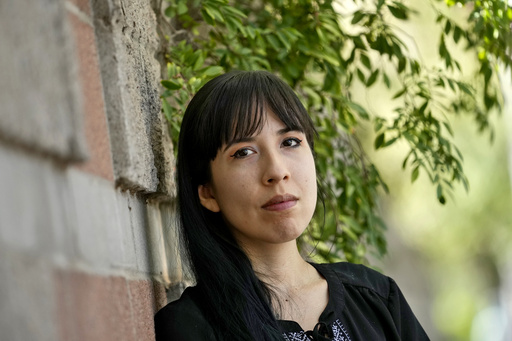
PHOENIX — Jocelyn Ruiz recalls a moment from her fifth-grade class when her teacher raised concerns about large-scale immigration patrols likely to affect Arizona’s metropolitan area. This prompted her to inquire with her mother, leading to a significant family revelation. Her mother had come to the United States illegally, leaving Mexico in search of a stable life over a decade ago.
Ruiz, who was born in California and grew up in the Phoenix area, was swept with anxiety, fearing the potential deportation of her mother, despite having no criminal background. Along with her two younger siblings, Ruiz and her parents chose to navigate their lives quietly, avoiding conversations about their differing immigration statuses. “We lived as Americans,” she explained.
In the U.S., over 22 million individuals reside in households that include at least one member without legal status, as per the Pew Research Center’s analysis of 2022 Census data. This figure represents close to 5% of all households nationwide and about 5.5% in Arizona, a critical state where Latino voters could influence election outcomes.
If Donald Trump were to win the presidency and deliver on his campaign pledge to conduct widespread deportations, it could drastically disrupt the lives of the estimated 11 million undocumented immigrants in the country, as indicated by the U.S. Census Bureau. This scenario would also severely impact U.S. citizens within those families.
Immigration has been a central theme of Trump’s political agenda since he proposed building a border wall in 2015 during his first presidential campaign. As Election Day approaches, Trump continues to focus on immigration, vehemently criticizing the Biden administration’s approach to border control and labeling it as a grave threat to American society, despite polls illustrating that many voters prioritize economic issues.
This crackdown on immigration has prompted some mixed-status families to advocate for change, arguing that the economy thrives on immigrant contributions and that these workers deserve a path to legal residency or citizenship. However, others prefer to keep silent, striving to avoid drawing attention to their situations.
Even among those at risk of deportation, some individuals support Trump’s initiatives. A recent Pew Research survey found a stark political division: 88% of Trump’s supporters favor mass deportations, contrasting sharply with the 27% of voters backing Vice President Kamala Harris.
During a visit to the Arizona-Mexico border in August, Trump was asked about the potential repercussions of mass deportations on mixed-status families. He acknowledged that “provisions will be made,” although he did not specify what these provisions might entail, and his campaign failed to provide further clarification upon request.
Living within a mixed-status family poses constant uncertainty, as immigration policies and political language significantly influence the lives of U.S. citizens and legal residents, noted Heide Castañeda, an anthropology professor at the University of South Florida. “Most Americans do not confront the fear of having a family member taken away on a daily basis,” Castañeda stated. “But for mixed-status families, that thought is always present.”
Politicians often underestimate that these groups exist within larger family, community, and neighborhood structures, Castañeda explained. In states like Nevada, California, New Jersey, and Texas, nearly 10% of households consist of individuals living in the U.S. without legal status, many of whom have been in the country for years and are crucial in supporting U.S. citizen relatives.
Michael Kagan, who leads the Immigration Clinic at the University of Nevada, Las Vegas, warned that new arrivals do not accurately represent Nevada’s demographic makeup, stressing that the majority have resided in the country for over a decade. He highlighted how U.S. citizen relatives could be inadvertently affected by deportation operations.
Erika Andriola, an immigrant advocate in Arizona, recounts the traumatic experience of her mother and brother being detained by immigration agents in 2013. Successfully campaigning for their release left her with lasting PTSD and anxiety. Although she and her brother are now legal residents, their mother has been fighting her deportation in court since 2017. Andriola emphasizes the burden of such experiences on families and communities.
Betzaida Robinson has also felt the effects of deportation in her family. Her brother was sent back to Mexico despite never having lived there, leaving a significant gap in their household where he previously contributed financially and helped raise her children. Robinson challenges Trump supporters to empathize with those who suffer from such separations, urging them to consider how they would feel in a similar situation.
Conversely, some undocumented individuals still align themselves with Trump, as highlighted by Castañeda. Even Andriola has family members who support him. “They may not fully grasp the potential consequences for people like my mom, but they focus on their own needs and beliefs,” she said.
Victoria Castro-Corral, an optimistic member of a mixed-status family and academic mentor at Chandler-Gilbert Community College, expressed her belief that mass deportation plans will never materialize. She attributes her positive outlook to her parents, who crossed the border illegally decades ago, instilling resilience in her. “We are here to stay,” she affirmatively proclaimed.
